The financial warfare against Russia, inter alia, has cut off Russian banks from the Society for Worldwide Interbank Financial Telecommunication (SWIFT) thereby blocking Russia from rapid money transfers internationally. Even though SWIFT accounts for no more than 1 percent of the transactions involving Russian entities and payments, the ban may potentially disrupt its trade in energy and agricultural produce as well as Foreign Direct Investment (FDI) and Foreign Institutional Investors (FII). In totality, the sanctions against Russia may shrink its economy by 5 percent. The current crisis has made many countries of the world think of developing alternative payment systems and capabilities. This would be a challenging task as the alternative to SWIFT would work only when a larger number of countries become willing to cooperate and agree to become a part of the alternative network.
Russia’s continued invasion of Ukraine and the consequent sanctions imposed against Russia by the western world are redefining the global geopolitics, markets, and economy. Businesses are busy fathoming the conflict-related risks and evolving strategies to minimise their exposure.
Ukraine has been hit hard on account of loss of life and property with long-term implications for rehabilitation, reconstruction, and regaining their production and trade capacities (Georgieva, 2022). At the same time, sanctions and embargos on Russia are not only crippling its financial system but causing serious disruptions to the world economy (Wijekoon et al., 2022).
The financial warfare against Russia, inter alia, has cut off Russian banks from the Society for Worldwide Interbank Financial Telecommunication (SWIFT) thereby blocking Russia from rapid money transfers internationally (Hotten, 2022). Launched in 1973, as an international messaging network to be used by banks and financial institutions globally for quick and faultless exchange of information related to financial transactions or trade settlements (Rappeport, 2022). Run as a cooperative society owned by 3500 financial institutions & by a board of 25 independent directors and overseen by G-10 central banks, SWIFT is used by around 11000 banks and financial institutions across 200 countries of the world (Vanamali, 2022). While some countries have initially opposed the idea of blocking Russia from SWIFT but finally, the dollar supremacy in global trade prevailed (Hotten, 2022).
Also Read: Russia-Ukraine Conflict: Impact on Global Flow of Funds
Exclusion of the financial system of a country from SWIFT bites it bitterly. It is unable to send, receive or make international payments and settlements. It effectively bars institutional investors from fund flow to the country. Even ordinary citizens and businesses find it impossible to receive and make payments from Global suppliers and customers. In summary, it disturbs all kinds of remittances to and fro the excluded country (AlJazeera, 2022).
No wonder, experts feel that exclusion from SWIFT, which accounts for half of the transnational transactions and settlements, has drastic, even catastrophic consequences not only for the economy of that country but the world economy as a whole (Liboreiro & Murray, 2022).
Exclusion of the financial system of a country from SWIFT bites it bitterly. It is unable to send, receive or make international payments and settlements. It effectively bars institutional investors from fund flow to the country.
Even though SWIFT accounts for no more than 1 percent of the transactions involving Russian entities and payments, the ban may potentially disrupt its trade in energy and agricultural produce as well as Foreign Direct Investment (FDI) and Foreign Institutional Investors (FII) (Hotten, 2022). In totality, the sanctions against Russia may shrink its economy by 5 percent (Hotten, 2022).
Also Read: Russia-Ukraine Crisis: A Big Boost for Iranian Economy?
Historical data suggests that sanctions do affect even large economies quite adversely. Iran’s export revenue had taken a hit of 50 percent of its oil export revenue and 30 percent of its total foreign trade, between 2012 when it was disconnected from SWIFT, and 2016 when it was reconnected again (Hotten, 2022). Obviously, this leads to a partial, if not total, shift to informal or indirect channels and search for alternative modes of transnational transfer and settlement.
As Russia was threatened with expulsion from SWIFT in 2014, when it annexed Crimea, Russia’s Central Bank had started developing its own alternative to SWIFT called System for Payment of Financial transfers (SPFS). It was launched in 2017 as a network of 400 institutions, mostly domestic banks and by 2020, only 23 foreign banks could be connected to it. Besides limited access to international institutions, SPFS also entails higher transaction costs. As a result, it has remained limited to only domestic transactions and presents no effective alternative to SWIFT (Wikipedia, 2022).
Also Read: Russia-Ukraine Crisis: The Impact on India
Russia is contemplating to become a part of the Unified Payment Interface (UPI) of India which may facilitate cross-border transactions as well. We may also see the integration of the MIR card payment system of Russia with the RuPay card run by the National Payments Corporation of India (NPCI).
Economic sanctions against Russia have led global card companies like Visa, MasterCard, PayPal, and American Express to suspend their operations in Russia, thereby banning Russians even from making domestic transactions. The National Payment Card System (MIR) and Faster Payment System (FPS) as promoted by the Russian government have proven a big relief to its people. Additionally, the country may use Cross border Interbank Payment System (CIPS) launched by China in 2015. This bolsters the sentiment that the exit of global credit card companies does not at all affect domestic transactions (McCann, 2022).
Reportedly, Russia is also contemplating to become a part of the Unified Payment Interface (UPI) of India which may facilitate cross-border transactions as well. We may also see the integration of the MIR card payment system of Russia with the RuPay card run by the National Payments Corporation of India (NPCI). Additionally, a Rupee-Rouble trade payment mechanism is also being considered to settle international transactions thereby allowing Indian exporters to be paid in Rupees instead of standard global currencies like the Dollar or Euro (Seth & Ghosh, 2022).
Also Read: Russia-Ukraine Crisis: A Big Boost for Iranian Economy?
The use of digital wallets, blockchain technologies, cryptocurrencies, and digital assets are being explored as an alternative to reduce dollar dependency and minimize the impact of exclusion from SWIFT.
Moreover, the use of digital wallets, blockchain technologies, cryptocurrencies, and digital assets are also being explored as an alternative to reduce dollar dependency and minimize the impact of exclusion from SWIFT (Kolakowski, 2022).
As international trade is generally resolved through dollar payments, Russia has also been denied access to the international dollar and euro currency markets, forcing ‘de-dollarisation’ of international trade either by using Yuan or Gold. A recent rise in its gold reserves lends credence to this argument (Jindal & Marwaha, 2021).
In summary, the current crisis has made many countries of the world think of developing alternative payment systems and capabilities. This would be a challenging task as the alternative to SWIFT would work only when a larger number of countries become willing to cooperate and agree to become a part of the alternative network.
References
- AlJazeera. (2022, February 27). What is SWIFT and why were some Russian banks excluded from it? | Explainer News | Al Jazeera. AlJazeera News Agencies. https://www.aljazeera.com/news/2022/2/25/what-is-swift-could-be-used-punish-putin
- Georgieva, K. (2022, March). IMF Staff Statement on the Economic Impact of War in Ukraine. International Monetary Fund. https://www.imf.org/en/News/Articles/2022/03/05/pr2261-imf-staff-statement-on-the-economic-impact-of-war-in-ukraine
- Hotten, R. (2022, February 27). Ukraine conflict: What is Swift and why is banning Russia so significant? – BBC News. BBC News. https://www.bbc.com/news/business-60521822
- Jindal, D., & Marwaha, Mahek. B. (2021, October 1). Russia, China and EU Are Pushing Towards De-Dollarization: Will India Follow? BRICS Information Portal. https://infobrics.org/post/34255/
- Kolakowski, M. (2022, February 25). Russia May Use Cryptocurrency to Evade Sanctions. Investopedia. https://www.investopedia.com/russia-may-use-cryptocurrency-to-evade-sanctions-5220265
- Liboreiro, J., & Murray, S. (2022, February 26). Ukraine war: What is SWIFT and why is expelling Russia a “last resort”? | Euronews. Euro News. https://www.euronews.com/my-europe/2022/02/25/eu-to-consider-russia-s-expulsion-from-swift-in-third-sanctions-package
- McCann, J. (2022, March 6). Ukraine latest: Russian banks flip to Chinese finance system as Visa and Mastercard pull payments. I-News. https://inews.co.uk/news/visa-mastercard-withdrawal-russia-welcomed-joe-biden-ukraine-sanctions-1500748/amp
- Rappeport, A. (2022, February 25). US didn’t cut off Russia from SWIFT to prevent unwanted consequences | Business Standard News. Business Standard. https://www.business-standard.com/article/international/us-didn-t-cut-off-russia-from-swift-to-prevent-unwanted-consequences-122022501699_1.html
- Seth, D., & Ghosh, S. (2022, March 16). Russia, India explore opening alternative payment channels amid sanction. | Live Mint. https://www.livemint.com/politics/policy/russia-india-explore-opening-alternative-payment-channels-amid-sanctions-11647371750761.html
- Vanamali, Krishna. Veera. (2022, March 3). What is the SWIFT payment system? | Business Standard News. Business Standard. https://www.business-standard.com/podcast/finance/what-is-the-swift-payment-system-122030100049_1.html
- Wijekoon, L., Swinkles, S., Lalik, E., Parekh, R., Isaacs, D., & Kozeychuk, U. (2022, March 3). Impact of the Ukraine Conflict and Related Sanctions on Global Workforces. SHRM. https://www.shrm.org/resourcesandtools/legal-and-compliance/employment-law/pages/the-impact-of-the-ukraine-conflict-and-related-sanctions-on-global-workforces.aspx Wikipedia, S. (2022, March 7). SPFS – Wikipedia. Wikipedia. https://en.wikipedia.org/wiki/SPFS
Disclaimer: The views expressed in this article are of the authors solely. TheRise.co.in neither endorses nor is responsible for them.

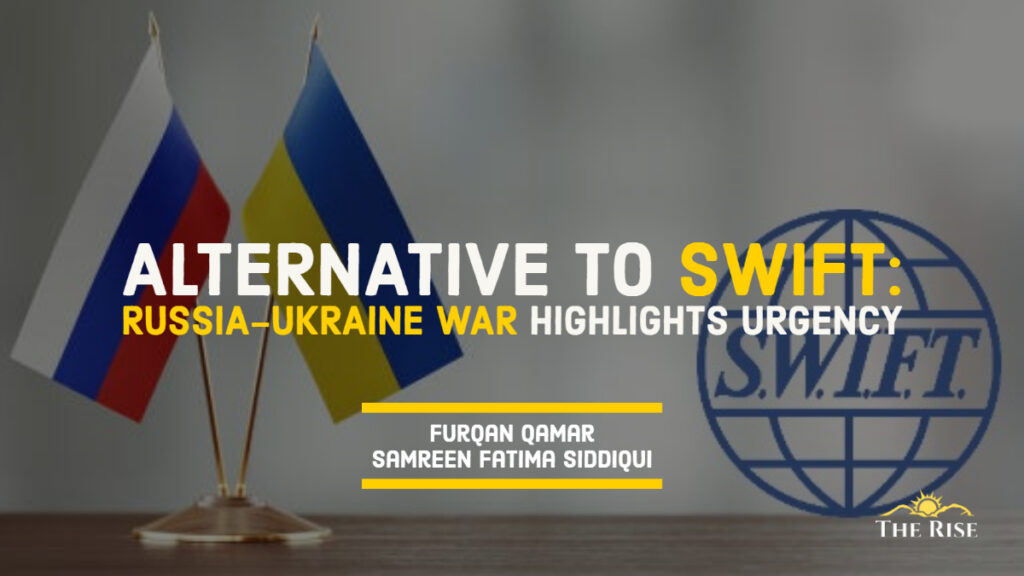







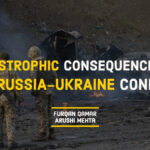

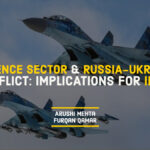
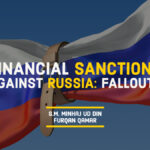

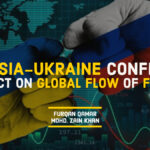
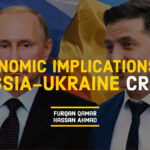


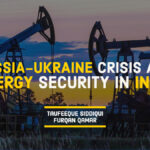





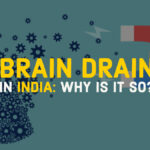












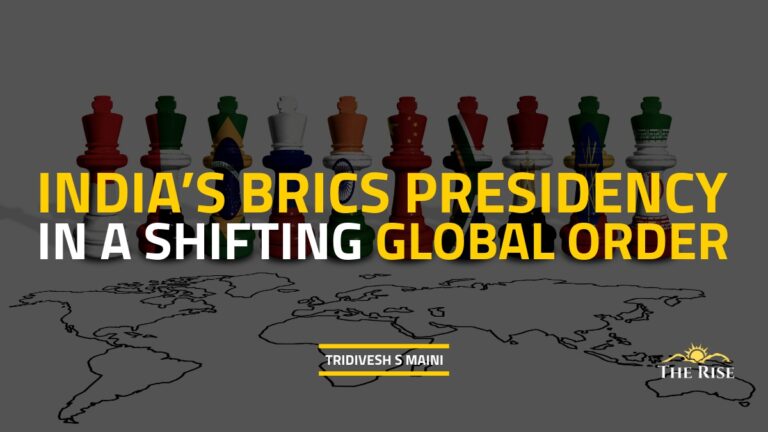



In para nine, please read ‘Russia’ in place of India.
Also, Samreen Fatima Siddiqui is a research scholar at the Centre for Management Studies, Jamia Millia Islamia, New Delhi
Russian ruble has already rebounded on Wednesday after the initial hit it took because of sanctions by US and Europe. Although, not sustainable for long term as Putin took some extreme measures to get the rebound. But it does raises questions about economic sanctions.
Nice article 👍
Mocked by people as rubble, the ruble comes roaring back the currency which hit record low of 121.5 rubles per dollar, past few months now has surged all the way back to where it was before attacking ukraine 79.7 rubles per dolllar
Despite too many sanctions, in Russian oligarch and their businesses, it is still largely toothless because foriegner still guzzling Russian oil and gas
Pingback: Fallouts of Financial Sanctions Against Russia - TheRise.co.in
Pingback: Catastrophic Consequences of the Conflict - TheRise.co.in
Pingback: I2U2 and its Significance in the Indo-Pacific - TheRise.co.in